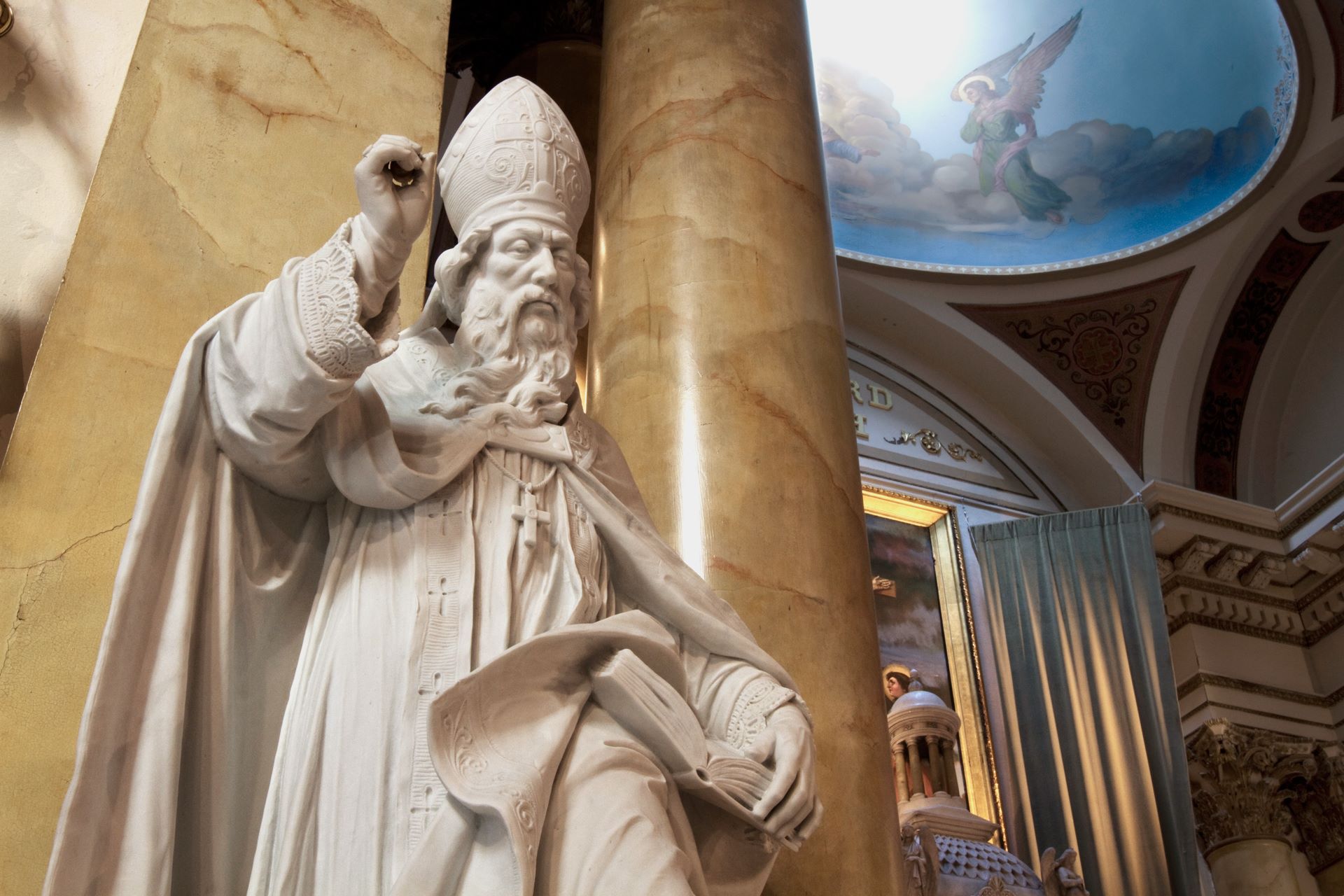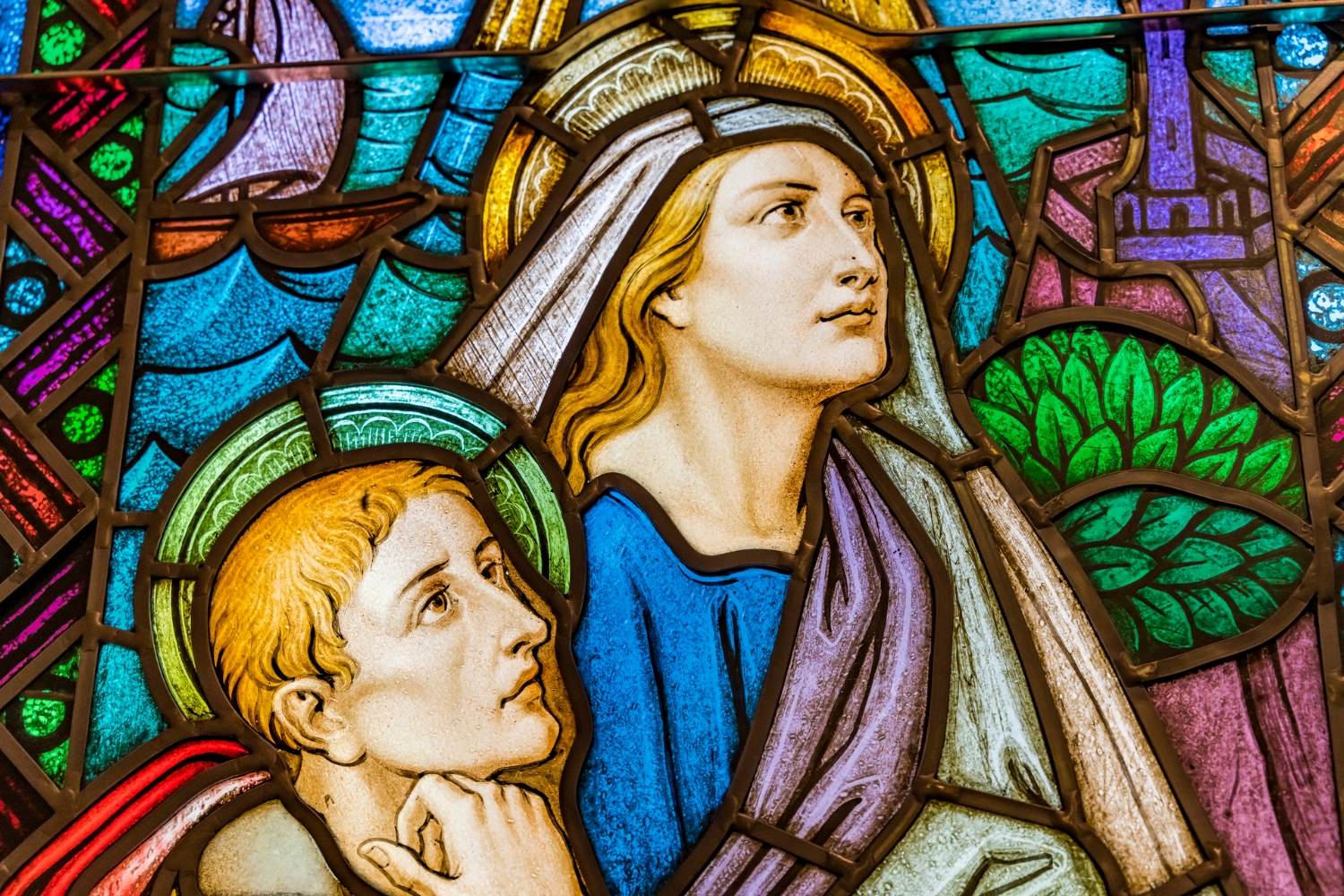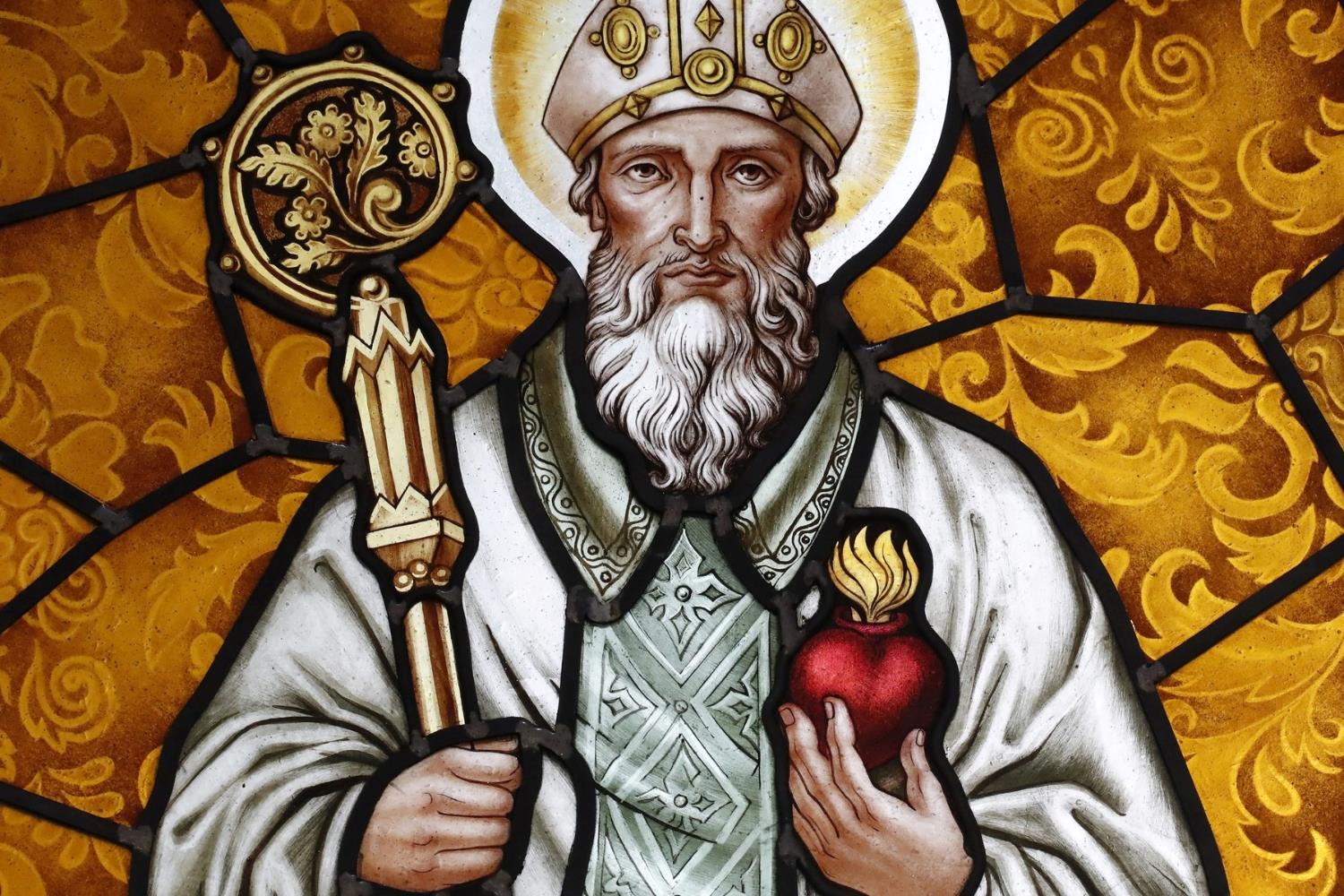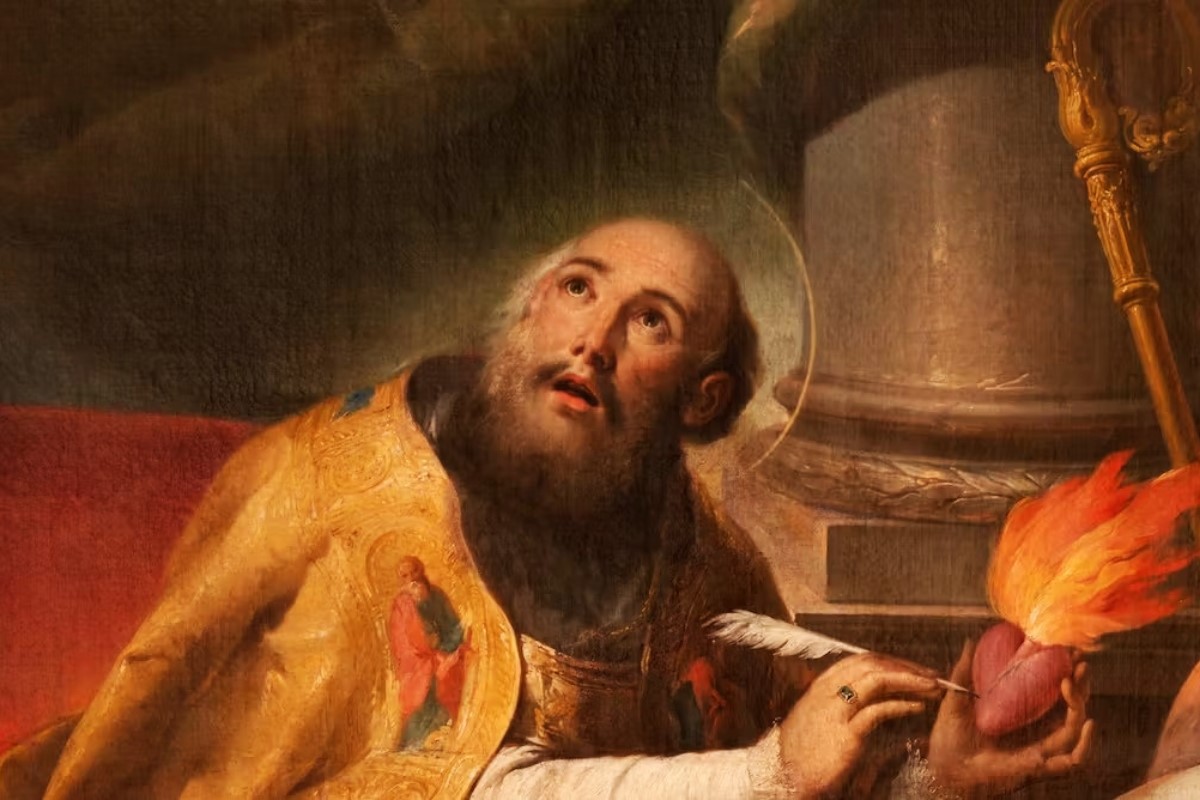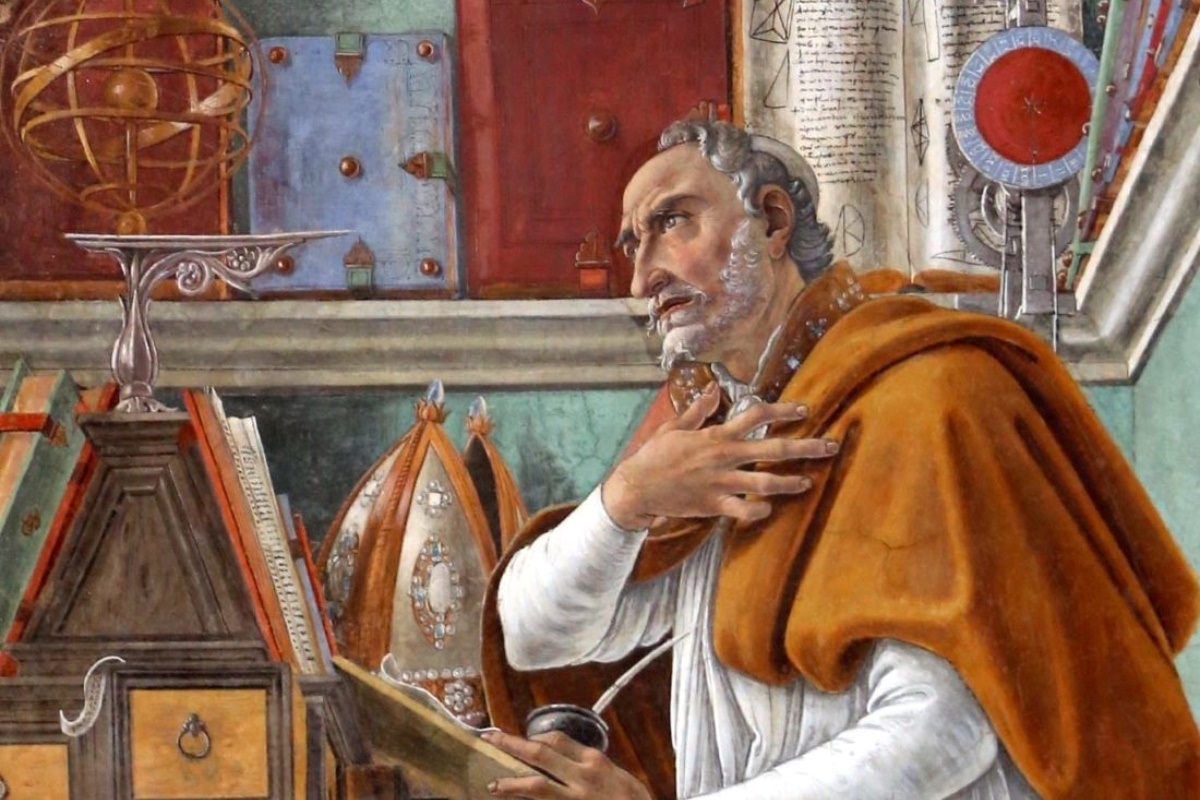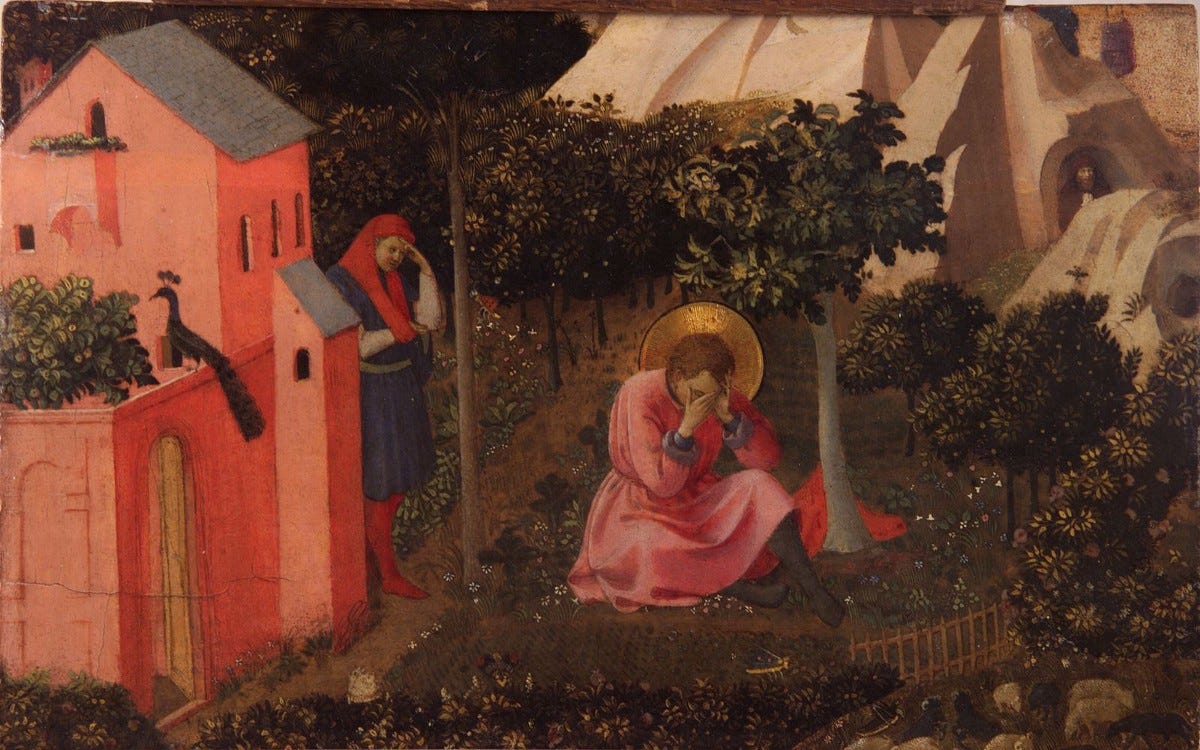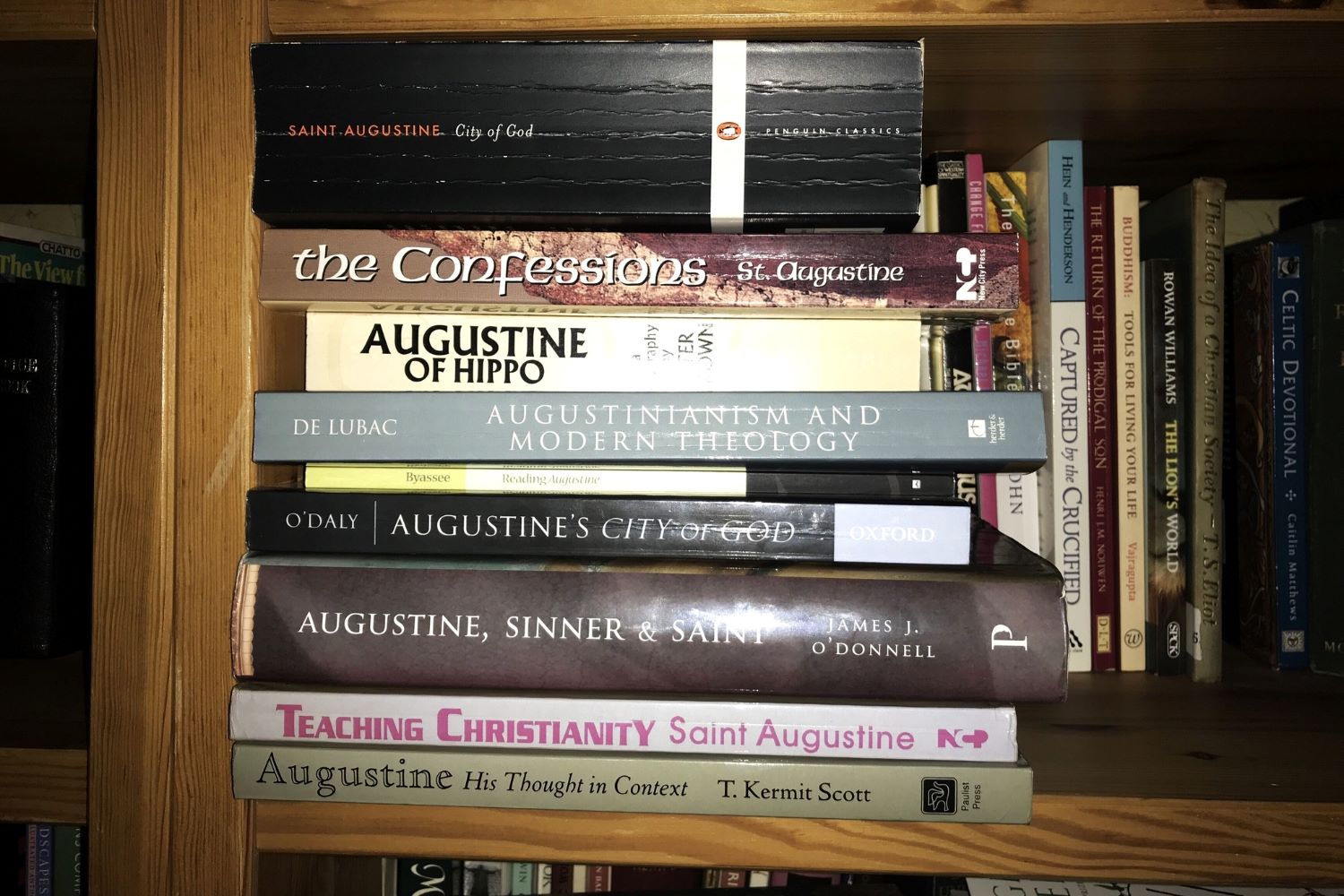Home>Theology and Spirituality>How Did Saint Augustine Summarize The Goal Of A Good Christian


Theology and Spirituality
How Did Saint Augustine Summarize The Goal Of A Good Christian
Published: February 10, 2024
Ericka Andersen, an editor at Christian.net, expertly merges digital strategy with content creation, focusing on faith and societal issues. Her communication skills enhance the platform's engaging narratives, fostering meaningful dialogue on belief's impact on society.
Discover Saint Augustine's profound summary of the goal of a good Christian in this insightful exploration of theology and spirituality. Unlock the wisdom of this influential figure.
(Many of the links in this article redirect to a specific reviewed product. Your purchase of these products through affiliate links helps to generate commission for Christian.net, at no extra cost. Learn more)
Table of Contents
Introduction
Saint Augustine, also known as Augustine of Hippo, was a pivotal figure in the development of Christian theology and spirituality. His profound influence on the Christian faith continues to resonate through the centuries, shaping the beliefs and practices of countless individuals. Augustine's journey from a life of indulgence and skepticism to one of profound faith and intellectual rigor is a compelling narrative that has inspired and challenged generations of believers.
Throughout his life, Augustine grappled with profound questions about the nature of God, the human condition, and the pursuit of spiritual fulfillment. His writings, particularly his autobiographical work "Confessions," offer a deeply personal and introspective exploration of these themes, providing invaluable insights into the complexities of faith and the human experience.
As we delve into the life and teachings of Saint Augustine, we embark on a journey of discovery and contemplation, seeking to glean wisdom from his profound insights and timeless reflections. From his early years in North Africa to his eventual embrace of Christianity and his prolific contributions to theological discourse, Augustine's legacy endures as a testament to the transformative power of faith and the enduring relevance of his teachings in the modern world.
In the subsequent sections, we will explore the formative experiences that shaped Augustine's worldview, his pivotal conversion to Christianity, the enduring impact of his theological works, and his succinct summary of the goal of a good Christian. Through this exploration, we aim to gain a deeper understanding of Augustine's enduring significance and the profound implications of his teachings for contemporary believers.
Read more: How Did Saint Augustine Of Hippo Die
Early Life of Saint Augustine
Born in the year 354 in the bustling city of Thagaste, located in the Roman province of Numidia (present-day Souk Ahras, Algeria), Augustine's early life was marked by a blend of intellectual curiosity, familial influence, and the cultural milieu of the late Roman Empire. His father, Patricius, a pagan of modest means, and his devout Christian mother, Monica, provided the contrasting pillars of influence that would shape Augustine's formative years.
From a young age, Augustine exhibited a keen intellect and insatiable thirst for knowledge. His precociousness was evident in his academic pursuits, and he demonstrated a remarkable aptitude for rhetoric and oratory. Despite his intellectual gifts, Augustine's early years were also marked by a degree of youthful indiscretion and moral ambiguity. His pursuit of knowledge was often accompanied by a penchant for revelry and indulgence, reflecting the tension between his intellectual aspirations and the allure of worldly pleasures.
Augustine's academic journey led him to Carthage, a vibrant center of learning in the Roman Empire. It was here that he encountered the teachings of the Manicheans, a religious sect that espoused a dualistic worldview, positing the existence of a cosmic struggle between light and darkness. The allure of the Manichean doctrine captivated Augustine's inquisitive mind, leading him to embrace its tenets for a period of time. This intellectual exploration marked a pivotal phase in Augustine's spiritual odyssey, as he grappled with profound existential questions and sought meaning amidst the philosophical and religious currents of his time.
Amidst his intellectual pursuits, Augustine's personal life was marked by a series of profound experiences, including his enduring relationship with a woman whose name is lost to history, with whom he had a son, Adeodatus. These formative experiences, characterized by the complexities of human relationships and the yearning for spiritual fulfillment, would later find poignant expression in Augustine's autobiographical work, "Confessions."
The early life of Saint Augustine thus unfolds as a tapestry of intellectual inquiry, moral introspection, and the pursuit of spiritual truth amidst the complexities of human existence. These foundational experiences would ultimately pave the way for Augustine's transformative encounter with Christianity and his enduring contributions to Christian theology and spirituality.
Conversion to Christianity
The pivotal moment in Augustine's spiritual journey occurred in the year 386, as he grappled with profound existential questions and sought solace in the pursuit of truth. It was during this period of intense introspection that Augustine's encounter with the renowned bishop, Ambrose of Milan, proved to be a catalyst for his transformative embrace of Christianity.
Ambrose's erudition and eloquence captivated Augustine, drawing him into the sphere of Christian thought and doctrine. Through his interactions with Ambrose and his immersion in the Christian community, Augustine underwent a profound intellectual and spiritual metamorphosis. The intellectual rigor and moral clarity of Ambrose's teachings resonated deeply with Augustine, igniting a fervent quest for spiritual enlightenment and moral rectitude.
The influence of Ambrose, coupled with Augustine's own intellectual pursuits and the unwavering prayers of his mother, Monica, converged to kindle a profound awakening within Augustine's soul. His heart and mind were gradually illumined by the radiant truths of the Christian faith, dispelling the shadows of doubt and skepticism that had long clouded his spiritual vision.
In the midst of this transformative journey, Augustine experienced a climactic moment of spiritual revelation in a garden in Milan. Overwhelmed by a profound sense of spiritual anguish and inner turmoil, Augustine was enveloped by a transcendent encounter with the divine. In this transcendent moment, Augustine heard a child's voice, as if from a nearby house, chanting "Take up and read, take up and read." Interpreting this as a divine sign, Augustine turned to the Scriptures and, upon reading a passage from the Epistle to the Romans, experienced a profound epiphany that illuminated his path to spiritual redemption and renewal.
This transformative encounter marked the definitive turning point in Augustine's spiritual odyssey, leading him to embrace the Christian faith with unwavering conviction and fervent zeal. His conversion to Christianity was not merely a doctrinal assent, but a profound surrender of the heart and mind to the transformative power of Christ's love and grace.
Augustine's conversion stands as a testament to the profound impact of divine grace and the relentless pursuit of truth. His journey from skepticism and moral ambiguity to unwavering faith and moral clarity serves as an enduring source of inspiration for seekers of truth and spiritual fulfillment across the ages. Through his conversion to Christianity, Augustine embarked on a new chapter of profound spiritual insight and intellectual exploration, laying the foundation for his enduring legacy as one of the most influential figures in Christian history.
Theological Works
Augustine's prolific literary output encompasses a vast array of theological treatises, philosophical reflections, and exegetical works that have profoundly shaped the contours of Christian thought and spirituality. At the heart of Augustine's theological corpus lies a relentless pursuit of truth, a profound engagement with the complexities of human existence, and an unwavering commitment to elucidating the mysteries of faith.
One of Augustine's seminal works, "The City of God," stands as a monumental treatise that grapples with the profound questions of divine providence, the nature of evil, and the unfolding drama of human history in light of God's redemptive plan. Written in response to the sacking of Rome by the Visigoths in 410, this magnum opus weaves together a rich tapestry of theological reflection, historical analysis, and eschatological vision, offering a compelling vision of the City of God as the ultimate locus of human destiny and divine sovereignty.
In "Confessions," Augustine embarks on a deeply personal and introspective exploration of his spiritual journey, laying bare the intricacies of his inner struggles, his encounters with divine grace, and his profound reflections on the nature of God and the human condition. This autobiographical masterpiece serves as a timeless testament to the transformative power of divine love and the enduring relevance of Augustine's spiritual odyssey for contemporary seekers of truth and meaning.
Augustine's theological oeuvre also encompasses profound reflections on the nature of sin, grace, and predestination, as articulated in works such as "On the Trinity," "On the Free Choice of the Will," and "On the Predestination of the Saints." These treatises delve into the intricacies of divine sovereignty and human agency, grappling with the profound tensions inherent in the Christian understanding of God's providential care and the moral responsibility of human beings.
Furthermore, Augustine's exegetical works, including his commentaries on the Psalms, the Gospel of John, and the Pauline epistles, offer incisive insights into the depths of sacred Scripture, illuminating the spiritual riches embedded within the biblical text and providing invaluable resources for the edification of the Christian faithful.
Through his theological works, Augustine emerges as a towering figure whose intellectual acumen, spiritual depth, and unwavering commitment to truth continue to inspire and challenge theologians, philosophers, and believers alike. His profound insights into the mysteries of faith, the complexities of human existence, and the transformative power of divine grace resonate with timeless relevance, inviting contemporary readers to embark on a journey of intellectual and spiritual discovery in the company of one of Christianity's most luminous minds.
Summary of the Goal of a Good Christian
At the heart of Augustine's theological vision lies a profound articulation of the goal of a good Christian. Central to this vision is the concept of love – a love that transcends mere sentimentality and encompasses a transformative orientation of the entire being toward God and neighbor. Augustine's understanding of the Christian life aspires toward the attainment of a profound and all-encompassing love, rooted in the love of God and radiating outward to embrace the entirety of creation.
The goal of a good Christian, as elucidated by Augustine, is the cultivation of a love that reflects the divine love poured forth into the human heart through the Holy Spirit. This love, characterized by its selflessness, compassion, and sacrificial nature, serves as the animating force that propels the Christian toward a life of moral rectitude, spiritual integrity, and unwavering devotion to God. It is a love that transcends the limitations of human frailty and embraces the boundless expanses of divine grace, beckoning the believer into a transformative communion with the Triune God.
Furthermore, Augustine's vision of the goal of a good Christian encompasses a profound commitment to the pursuit of wisdom and understanding, grounded in the fear of the Lord. This fear, not as a trembling dread, but as a reverential awe and profound humility before the majesty of God, serves as the wellspring from which true wisdom flows. The good Christian, in Augustine's conception, is one who seeks to discern the contours of divine truth, to plumb the depths of sacred Scripture, and to cultivate a profound intimacy with the living Word of God.
Moreover, Augustine's articulation of the goal of a good Christian encompasses a resolute commitment to moral rectitude and ethical integrity. The Christian life, in Augustine's vision, is marked by a steadfast adherence to the moral precepts of the Gospel, a rigorous pursuit of virtue, and a resolute rejection of the seductive allure of sin. It is a life characterized by a relentless quest for holiness, a fervent embrace of righteousness, and a steadfast commitment to embodying the transformative power of grace in every facet of existence.
In essence, Augustine's summary of the goal of a good Christian encapsulates a vision of transformative love, profound wisdom, moral rectitude, and unwavering devotion to God. It is a vision that beckons believers into a profound communion with the divine, a transformative encounter with the Triune God, and a resplendent journey toward the fulfillment of the greatest commandments – to love the Lord with all one's heart, soul, and mind, and to love one's neighbor as oneself.
Influence on Christianity
Augustine's influence on Christianity is immeasurable, permeating the theological, spiritual, and ethical dimensions of the faith with enduring resonance and profundity. His theological insights, philosophical acumen, and unwavering commitment to the pursuit of truth have left an indelible imprint on the contours of Christian thought and practice, shaping the beliefs and convictions of believers across the centuries.
One of Augustine's most enduring contributions to Christianity lies in his profound articulation of the doctrines of grace, sin, and predestination. His nuanced reflections on the interplay between divine sovereignty and human agency have engendered profound theological discourse, igniting debates and dialogues that continue to animate theological inquiry to this day. Augustine's emphasis on the transformative power of divine grace, coupled with his penetrating analysis of the complexities of human nature, has enriched the theological landscape of Christianity, offering invaluable resources for the edification and intellectual stimulation of believers and theologians alike.
Furthermore, Augustine's influence on Christian spirituality is manifested in his profound articulation of the dynamics of the human soul's yearning for God. His autobiographical work, "Confessions," stands as a timeless testament to the intricacies of the human experience and the transformative power of divine grace. Augustine's introspective exploration of the human condition, coupled with his unwavering commitment to the pursuit of spiritual fulfillment, has resonated deeply with generations of believers, inspiring them to embark on their own journeys of introspection, repentance, and renewal.
Moreover, Augustine's ethical vision, grounded in the pursuit of virtue, moral rectitude, and unwavering devotion to God, continues to exert a profound influence on the ethical framework of Christianity. His unwavering commitment to the pursuit of holiness, coupled with his profound reflections on the nature of love, justice, and moral responsibility, has enriched the ethical discourse of Christianity, providing a robust foundation for the cultivation of moral integrity and ethical discernment.
In essence, Augustine's influence on Christianity transcends the boundaries of time and space, inviting believers into a profound engagement with the complexities of faith, the depths of the human soul, and the transformative power of divine grace. His enduring legacy continues to inspire and challenge believers, theologians, and seekers of truth, beckoning them into a resplendent journey of intellectual and spiritual discovery in the company of one of Christianity's most luminous minds.
